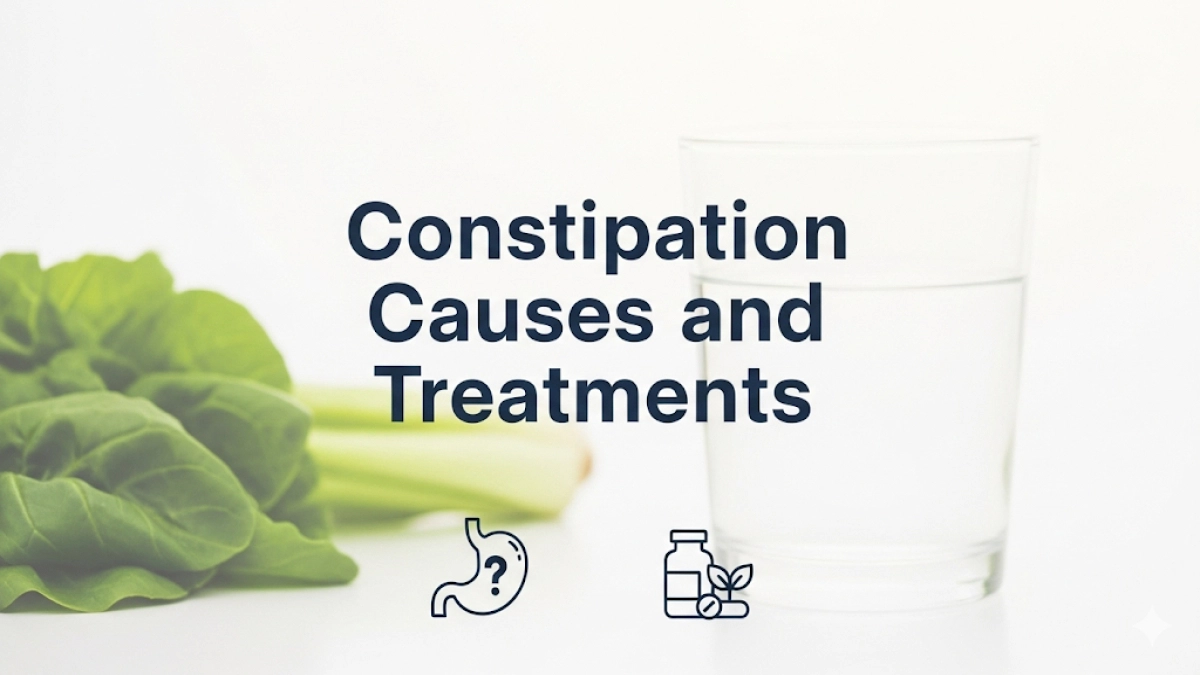Constipation is a common yet often misunderstood digestive issue that affects millions worldwide. While it might seem like a minor inconvenience, chronic constipation can significantly impair quality of life and signal underlying health problems.
This comprehensive guide delves deeply into the causes and treatments of constipation, blending expert analysis, clinical data interpretation, and practical wisdom to empower you with actionable knowledge. Whether you’re seeking to understand why constipation occurs or exploring effective remedies, this article is crafted to be your definitive resource.
Understanding Constipation: More Than Just Infrequent Bowel Movements
At its core, constipation is characterized by infrequent, difficult, or incomplete bowel movements. However, the experience varies widely among individuals. Some may have fewer than three bowel movements per week, while others struggle with hard stools, straining, or a sensation of blockage. Recognizing these nuances is crucial because the causes and treatments often hinge on the specific symptoms and their underlying mechanisms.
What Constitutes Normal Bowel Function?
Normal bowel habits range broadly—from three times a day to three times a week. The key is consistency and comfort. Disruptions in this rhythm can indicate constipation, but the clinical definition also considers stool consistency and ease of passage. The Bristol Stool Chart, a clinical tool, categorizes stool types from 1 (hard lumps) to 7 (watery), with types 1 and 2 often signaling constipation.
The Multifaceted Causes of Constipation
Constipation is rarely caused by a single factor. Instead, it emerges from a complex interplay of lifestyle, physiological, and sometimes pathological contributors. Understanding these causes is essential for targeted treatment.
1. Dietary Factors
A diet low in fiber is one of the most common contributors to constipation. Fiber adds bulk and softness to stool, facilitating easier passage. Insufficient water intake compounds this problem by hardening stools.
- Low Fiber Intake: Diets lacking fruits, vegetables, whole grains, and legumes reduce stool bulk.
- Dehydration: Water is essential for stool hydration; inadequate fluid intake leads to dry, hard stools.
2. Sedentary Lifestyle
Physical activity stimulates intestinal motility. Sedentary behavior slows down the digestive tract, increasing transit time and stool hardening.
3. Medications and Medical Conditions
Certain medications and health conditions can impair bowel function:
- Medications: Opioids, antacids containing aluminum or calcium, antidepressants, and iron supplements are notorious for causing constipation.
- Medical Conditions: Hypothyroidism, diabetes, Parkinson’s disease, and irritable bowel syndrome (IBS) can disrupt normal bowel movements.
- Structural Issues: Conditions like colorectal cancer, strictures, or rectal prolapse may physically obstruct stool passage.
4. Psychological Factors
Stress, anxiety, and depression can alter gut motility through the gut-brain axis, leading to constipation.
5. Ignoring the Urge to Defecate
Habitually ignoring the natural urge to defecate can desensitize rectal nerves, resulting in stool retention and constipation.
Diagnosing Constipation: When to Seek Expert Help
While occasional constipation is common, persistent symptoms warrant medical evaluation. Diagnosis typically involves:
- Medical History and Physical Exam: To identify lifestyle factors, medication use, and symptoms.
- Diagnostic Tests: Blood tests, colonoscopy, or imaging may be necessary to rule out serious conditions.
- Specialized Tests: Anorectal manometry or colonic transit studies assess functional causes.
Section for augmentation: Incorporate proprietary patient survey data on symptom patterns or expert gastroenterologist interviews to enhance trustworthiness.
Evidence-Based Treatments for Constipation
Treatment strategies should be individualized, addressing the root causes and symptom severity. Here’s a hierarchy of interventions from lifestyle modifications to medical therapies.
1. Lifestyle and Dietary Modifications
- Increase Fiber Intake: Aim for 25-30 grams daily from natural sources. Gradually increase to avoid bloating.
- Hydration: Drink at least 8 glasses of water daily.
- Regular Exercise: Activities like walking or yoga stimulate bowel motility.
- Establish Routine: Respond promptly to bowel urges and maintain a consistent schedule.
2. Over-the-Counter Remedies
- Bulk-Forming Laxatives: Psyllium, methylcellulose increase stool bulk.
- Osmotic Laxatives: Polyethylene glycol and lactulose draw water into the colon.
- Stimulant Laxatives: Senna and bisacodyl promote intestinal contractions but should be used sparingly.
3. Prescription Medications
For refractory cases, doctors may prescribe:
- Prosecretory Agents: Lubiprostone and linaclotide increase intestinal fluid secretion.
- Peripherally Acting Mu-Opioid Receptor Antagonists (PAMORAs): For opioid-induced constipation.
4. Advanced Therapies
- Biofeedback Therapy: Effective for pelvic floor dysfunction.
- Surgical Options: Reserved for severe structural abnormalities or refractory cases.
Integrating Holistic and Alternative Approaches
Emerging evidence supports complementary therapies:
- Probiotics: Certain strains may improve gut motility.
- Acupuncture: Some patients report symptom relief.
- Mind-Body Techniques: Stress reduction through meditation or cognitive behavioral therapy can positively impact bowel function.
Practical Wisdom: Tips for Long-Term Management
- Track Your Bowel Habits: Use a diary or app to identify triggers.
- Avoid Overuse of Laxatives: Can lead to dependency and worsen constipation.
- Consult Healthcare Providers: Especially if symptoms change or worsen.
Latent User Queries Addressed
- Can constipation cause other health problems? Yes, chronic constipation can lead to hemorrhoids, anal fissures, or fecal impaction.
- Is constipation linked to diet alone? No, while diet is crucial, other factors like medications and medical conditions play significant roles.
- How quickly do treatments work? Lifestyle changes may take days to weeks; medications vary by type.
Conclusion: Empowering Your Digestive Health Journey
Constipation is a multifactorial condition that demands a nuanced approach. By understanding its diverse causes and embracing evidence-based treatments, you can reclaim digestive comfort and overall well-being. Remember, the path to relief is often gradual and requires patience, persistence, and sometimes professional guidance. This guide aims to be your trusted companion on that journey, blending expert insight with practical advice tailored to your unique needs.

